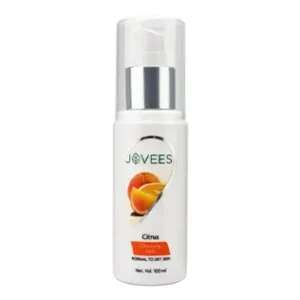Face wash, also known as cleanser, is a skincare product designed specifically for cleansing the skin on your face. Its primary purpose is to remove dirt, oil, makeup, and impurities from the skin's surface, helping to maintain a clean and healthy complexion. Here is a breakdown of what face wash does:
- Cleansing: Face washes help remove daily buildup of dirt, sweat, and oils, which can clog pores and lead to acne or other skin issues.
- Removing Makeup: Many face washes are effective at breaking down and removing makeup, ensuring your skin is clean before applying other skincare products.
- Exfoliating: Some face washes contain exfoliating agents (like beads or acids) that help to slough off dead skin cells, promoting a smoother texture.
- Balancing: A good face wash can help balance your skin’s pH, which is essential for maintaining healthy skin barrier function.
- Hydration: Certain formulations include moisturizing ingredients that help prevent the skin from drying out, keeping it hydrated and soft.
- Preparing the Skin: Using a face wash is often the first step in a skincare routine, preparing the skin to better absorb serums, moisturizers, and treatments that follow.
Types of face wash
- Foaming Cleansers: Great for oily or acne-prone skin, as they provide a deep clean.
- Cream or Lotion Cleansers: Suitable for dry or sensitive skin, offering hydration while cleansing.
- Gel Cleansers: Lightweight and effective for combination skin types.
- Exfoliating Cleansers: Contain ingredients like glycolic acid or salicylic acid to help with acne and dull skin.
Choosing the right face wash depends on your skin type and specific skin concerns. Cleanser price in Sri Lanka will vary according to brands. For example, a Loreal cleanser will be more expensive than a locally made product.
How to choose the best facewash for your skin type
Choosing the best face wash for your skin type involves understanding your skin’s unique characteristics and needs. Here is a guide based on different skin types:
- Oily Skin
- Look For: Gel-based or foaming cleansers that contain salicylic acid, tea tree oil, or other oil-controlling ingredients.
- Avoid: Heavy creams or oils that can clog pores.
- Dry Skin
- Look For: Creamy or lotion-based cleansers that are hydrating and contain ingredients like glycerine, hyaluronic acid, or ceramides.
- Avoid: Harsh exfoliants or foaming cleansers that strip moisture.
- Combination Skin
- Look For: A balanced cleanser that is not too drying or too oily; gel cleansers with mild exfoliating properties can be effective.
- Avoid: Products that are too extreme for either oily or dry areas.
- Sensitive Skin
- Look For: Gentle, fragrance-free cleansers with soothing ingredients like chamomile, aloe vera, or oatmeal.
- Avoid: Harsh scrubs, alcohol, and strong fragrances that can irritate the skin.
- Acne-Prone Skin
- Look For: Non-comedogenic (won't clog pores) cleansers that contain salicylic acid or benzoyl peroxide to help treat and prevent breakouts.
- Avoid: Heavy oils or thick creams that can exacerbate acne.
- Normal Skin
- Look For: A mild cleanser that maintains the skin's balance without being too drying or oily.
- Avoid: Extreme formulations that cater only to oily or dry skin types.
Additional Tips:
- Read Ingredients: Always check the ingredient list and avoid known irritants for your skin type.
- Patch Test: If trying a new product, perform a patch test on a small area of your skin to check for adverse reactions.
- Consider Your Environment: Changes in climate or seasons can affect your skin type. You might need to switch your cleanser accordingly.
- Consult a Dermatologist: If you have specific skin concerns (like severe acne or eczema), it might be helpful to consult with a dermatologist for personalised recommendations.
By understanding your skin type and needs, you can make a more informed choice about the best face wash for your skincare routine.
Some concerns about using facewash
Using face wash is generally beneficial for maintaining healthy skin, but there are some concerns to consider to ensure you choose and use it appropriately:
- Over-Cleansing
- Concern: Washing your face too frequently can strip away natural oils, leading to dryness, irritation, and even increased oil production as your skin tries to compensate.
- Tip: Limit cleansing to twice a day (morning and night) unless otherwise recommended.
- Harsh Ingredients
- Concern: Some face washes contain harsh chemicals, fragrances, or alcohol that can irritate sensitive skin, cause allergic reactions, or disrupt the skin barrier. Some people use cleansers that also have skin whitening cream or properties in it, which may do more harm than good for your skin.
- Tip: Choose gentle, fragrance-free products with soothing ingredients.
- Inappropriate Formulation
- Concern: Using a face wash that is not suited for your skin type can lead to issues like breakouts, excessive dryness, or irritation.
- Tip: Choose a product tailored to your specific skin type and concerns.
- Neglecting Moisturizing
- Concern: If a face wash is too drying, people may forget to apply moisturizer afterward, leading to dehydrated skin.
- Tip: Always follow cleansing with a good moisturizer to maintain hydration.
- Not Removing All Makeup or Sunscreen
- Concern: Some face washes may not effectively remove all makeup or sunscreen, leading to clogged pores and potential breakouts.
- Tip: Consider double cleansing (using an oil-based cleanser followed by a water-based one) if you wear makeup or sunscreen regularly.
- Skin Sensitivity
- Concern: New face washes can cause breakouts or sensitivity as your skin adjusts, especially if they contain active ingredients like acids or exfoliants.
- Tip: Introduce new products gradually and give your skin time to adjust.
- Environmental Impact
- Concern: Some face wash products come in plastic packaging or contain microbeads that contribute to environmental pollution.
- Tip: Look for eco-friendly brands or those with sustainable packaging.
Expired Products
- Concern: Using expired face wash can lead to decreased effectiveness or skin irritation.
- Tip: Check expiration dates and discard products that are past their prime.
Being aware of these concerns can help you make informed choices about face wash and overall skincare. Always listen to your skin and adjust your routine based on how it reacts to different products. If you experience persistent issues, consulting a dermatologist is a good idea.


